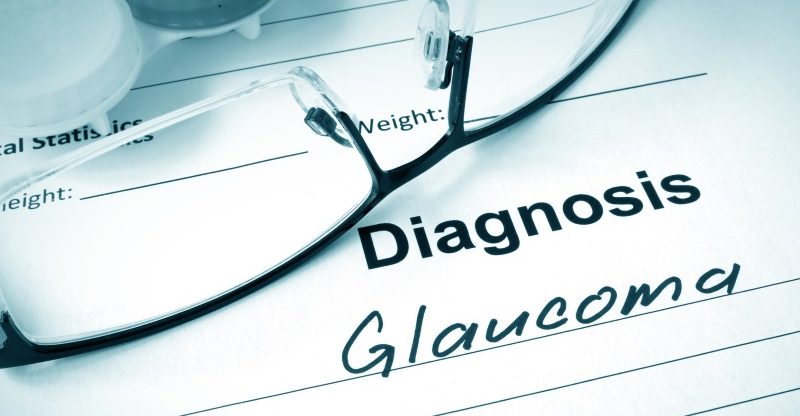How to Treat and Prevent Glaucoma Naturally
Taking care of your eyes and protecting your vision is a vital component of maintaining your health.
You should never ignore problems with your vision, or you could become one of the two million people in the U.S. with glaucoma.
It is a leading cause of blindness. Glaucoma is not a disease to ignore.
Learning to treat it can help protect your vision, well into your golden years.
First, you need to understand what causes glaucoma, including what signs to watch for related to your eye health.
We also discuss the many things you can do to keep your eyes healthy.
After a diagnosis of glaucoma, there are still many natural therapies you can use to help treat this eye disease.
We have all the answers you need for dealing with glaucoma.
This includes how to rely on your favorite natural remedies.
What Is Glaucoma?
Your eyes naturally produce fluid, as well as drain it.
These two processes typically occur at equal rates.
If, however, you are not removing enough fluid from one or both of your eyes, this can result in increased pressure inside of your eyeball.
This pressure can damage your optic nerve, your lens and even your retina.
If left untreated, chronic pressure and damage to your retina or optic nerve can lead to blindness and other vision problems.
Types of Glaucoma
There are two types of glaucoma. The rarer variety is called closed-angle glaucoma.
It occurs when the outflow channel in one eye, becomes blocked by the iris.
When this happens, fluid pressure rises rapidly and results in intense pain, headache, and blurred vision.
The eye may even become red and swollen and the pain may result in vomiting.
This type of glaucoma needs immediate medical attention.
Loss of vision can happen very quickly, with this form of the disease.
The more common type of eye disease is known as open-angle glaucoma.
It results from clogging of the outflow channel with debris.
This condition usually builds up over many years, as drainage from the eye steadily decreases and slowly raises the interior pressure of the eye.
Most people do not notice any symptoms for many years.
However, over time, you may start to experience mild headaches, a narrowing of your peripheral vision, or seeing halos around lights.
The more glaucoma progresses, the more significant these symptoms will become, especially a growing sense of tunnel vision.
While glaucoma is often thought to be a disease that strikes older people, it can occur at any age.
Having ocular hypertension in your younger years is a precursor to glaucoma.
It is, therefore, important that you have your eyes examined regularly to check your pressure.
What Causes Glaucoma?
No single factor causes glaucoma.
A family history of the disease places you at higher risk for developing it yourself.
If you have other eye disorders, such as macular degeneration, you are also more likely to develop glaucoma.
Certain kinds of medications can raise your eye pressure.
Therefore, if you take antidepressants, blood pressure medications, or corticosteroids, you should have your eye pressure measured regularly.
Nutritional deficiencies can lead to problems with your eyes, as can an accumulation of toxins and wastes in your cells.
Naturally Treating Glaucoma
Now that you know more about this eye disorder, it is important to use that information to keep your eyes healthy and working properly.
Preventing glaucoma should be a critical health goal throughout your life.
There are many natural treatments that will help you to accomplish this.
The same remedies that work for preventing this eye disorder, are also effective at treating it after you have been diagnosed.
We will first share ways to change your diet to promote eye health.
This will be followed by natural treatments and remedies that can help you manage your glaucoma.
Eating for Eye Health
By reducing your overall burden of toxins and wastes, as well as keeping the rest of your body in healthy, working order, you can also help your eyes to remain healthy.
There are many nutrients that are particularly beneficial for your eyes, so it is essential to include them in your diet.
First, you need to be sure that you are getting enough carotenoids in your diet.
This crucial nutrient is rich in Vitamin A.
It also has antioxidant properties that are excellent for your eye health.
The “myth” about carrots being good for your eyes is, in fact, true!
In addition to carrots, foods high in carotenoids include squash, sweet potatoes, tomatoes, apricots, kale, and pumpkins.
In addition to these specific fruits and vegetables, you should aim to eat a wide range of fresh plants each day.
Fresh vegetables and fruits contain other minerals and vitamins that are also good for your eye health.
While whole foods are always preferred, fresh juices are also full of these nutrients.
Flavonoids are also critical for eye health.
Fruits that have anthocyanidin and anthocyanin have been shown to improve eye health, so try to eat cherries and blueberries or take bilberry extract regularly.
This will provide a great benefit for your intraocular pressure.
Essential fatty acids, including omega-3s, are also critical for preventing and treating glaucoma.
These fatty acids are commonly found in freshly caught, cold-water fish, such as salmon, tuna and sardines.
These acids, known as EPA and DHA, can help improve eye drainage, which can lower pressure and reduce the risk of glaucoma.
These same acids are also helpful for preventing macular degeneration.
Fatty acids are also helpful in treating diabetes.
There is a high correlation between diabetes and eye diseases, such as glaucoma.
Therefore, treating your diabetes can also help keep your eyes healthy.
Several minerals are essential for eye health, especially chromium and magnesium.
Getting enough of these from the foods you eat is important.
To get more chromium and magnesium in your diet, you can eat brewer’s yeast.
This is a fungus used in the fermentation of bread and beer.
It is naturally high in both minerals, making it an excellent dietary addition for treating glaucoma.
Other foods rich in magnesium include cantaloupe, brown rice, dairy, fish and certain types of meat.
Foods to Avoid
In addition to packing your diet with healthy foods, especially fruits and vegetables with the nutrients your eyes need, there are many foods that could be making your glaucoma symptoms worse.
If you have glaucoma or are at risk for this eye disease, then you should avoid these foods.
Avoid any foods to which you are allergic, intolerant or sensitive.
These foods increase your body’s natural inflammatory response, which can raise your eye pressure.
You should also limit your consumption of caffeine, which elevates blood flow and raises intraocular pressure.
There is a strong but not fully understood link between diabetes and glaucoma.
Therefore, avoiding foods that raise your blood glucose levels and eating foods without added sugars, will help to keep your eyes healthy.
Use Essential Oils
Chronic hypertension, also known as high blood pressure, is a risk factor for developing glaucoma.
Lowering your blood pressure is possible using aromatherapy.
Lowered blood pressure means improved circulation to your eyes, which can help with treating glaucoma.
For best results, you can use these in a diffuser, or you can mix them with a carrier oil and apply them around your eyes or on your temples.
Be careful to not get any of these oils directly into your eye.
The best oils for treating glaucoma include:
- Lemon
- Helichrysum
- Cypress
- Clove
- Frankincense
Take Nutritional Supplements
If you are not able to get the nutrition you need from the foods you eat, then taking nutritional supplements may be necessary.
Many people lack sufficient amounts of certain vitamins, minerals and other compounds in their diet.
In these cases, nutritional supplements can help.
The following are recommended for those who cannot eat the foods necessary to supply them with these nutrients.
You already know how important magnesium is for eye health, and if you don’t want to add brewer’s yeast to your diet, you can take a magnesium supplement.
250 milligrams per day will help relax the blood vessels in your eye and improve circulation.
Magnesium is also available in topical form, which you can use anywhere on your skin.
The flavonoids found in berries are excellent for eye health, and bilberry extract is an excellent source of the powerful anthocyanins that are excellent for your eyes.
These compounds can help repair damage and support healthy eye function and structure.
Take 160 milligrams twice per day of a 25 percent bilberry extract for the best results.
If your diet lacks the essential fatty acids EPA and DHA, you may consider adding a fish oil supplement to your daily regimen.
Taking 1,000 milligrams per day of quality fish oil can reduce eye pressure, as well as keep eye tissue healthy and functioning well.
Diabetics and others with blood sugar problems should also consider a chromium supplement.
Chromium is necessary for balancing blood sugar, and it is also essential for regulating eye pressure.
You can take up to 500 milligrams of chromium twice daily if your diet lacks this vital mineral.
Vitamin C is not only important for your immune system but also for your eye health.
Those who take Vitamin C, notice an immediate drop in their eye pressure.
This effect lasts as long as you continue to take the vitamin.
Taking 1,000 milligrams up to four times per day is recommended, but too much of this vitamin can cause diarrhea, so increase your dosage slowly.
The antioxidant alpha lipoic acid is showing promise for treating glaucoma.
It lowers eye pressure and can help reduce damage from free radicals.
Early research into this compound has found that it keeps eye tissue flexible, which is helpful when treating glaucoma.
The final supplement you may want to consider adding to your glaucoma treatment plan is ginkgo biloba.
This herb helps improve blood circulation, especially to the brain and eyes.
It has been shown to improve damaged tissues in some glaucoma patients.
Take 60 milligrams three times per day.
Try Acupressure
Acupressure can be used to reduce eye strain, promote blood circulation and promote relaxation, which is useful when you are treating glaucoma.
These acupressure points are most effective for those treating glaucoma.
St3 is a point found on your face, directly below your pupil.
Run your finger straight down from the center of your eye, until it is even with your nostril.
This point will relieve pressure on your eye.
LI3 and LI4 are also points you can use to improve the blood flow to your eyes and the rest of your head.
LI3 is located on your hand.
It can be found by sliding a finger down the outside of your index finger, stopping just as you pass your third knuckle.
LI 4 is along this same path.
Continue sliding down that bone until you reach the junction between it and your thumb’s lower bone.
That is LI4.
Finally, B10 can help soothe strained and tired eyes.
B10 are two different points on the back of your neck, found about one finger’s width below the base of your skull, along the neck muscles running along either side of your spine.
Other Recommendations
If you want to help your eyes to remain rested and healthy, avoid extended periods of eye strain.
Activities that can strain your eyes include reading, sewing, playing video games, computer work and anything close up.
If you smoke, you should quit.
Smoking inhibits the circulation of blood to your retinas and other eye parts.
You should also avoid secondhand smoke if you have glaucoma.
Staying physically active can help you keep your body and your eyes healthy.
Physical activity helps to balance eye pressure, so be sure to get plenty of daily activity.
Conclusion
Glaucoma is a disease that can be treated and stopped early before it causes severe damage.
Knowing what foods support eye health, as well as how to naturally lower eye pressure, can help you to treat glaucoma at home, in conjunction with other types of treatment,
As the second-leading cause of blindness, glaucoma is not something you should ignore.
Treating it promptly is essential to maintaining your vision and protecting your eye health.
FDA Compliance
The information on this website has not been evaluated by the Food & Drug Administration or any other medical body. We do not aim to diagnose, treat, cure or prevent any illness or disease. Information is shared for educational purposes only. You must consult your doctor before acting on any content on this website, especially if you are pregnant, nursing, taking medication, or have a medical condition.
HOW WOULD YOU RATE THIS ARTICLE?





